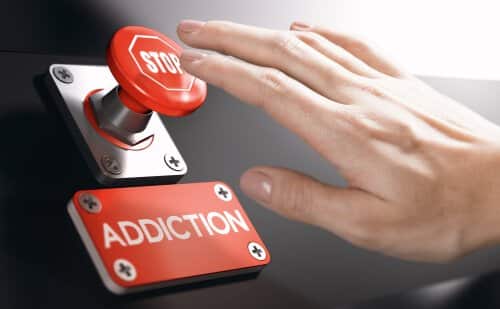Most Common Misconceptions about Addiction
Although we now know more about addiction than ever before, there are still many misconceptions about substance use disorders even among informed people.
There have been significant advancements in understanding the disease of addiction, addiction treatment and research, but a lack of understanding of the chronic disease of addiction creates barriers, preventing individuals suffering from substance use disorders from accessing treatment in a timely manner. Additionally, many of these antiquated preconceptions about addiction continue to stigmatize the disease and make people from addiction ashamed of their condition.
Let’s take a look at a few of them:
1. Addiction is a behavioral or moral issue:
One of the most common misconceptions about addiction is that it is essentially a behavioral problem or a moral failure. Consequently, it is assumed that people who use drugs or alcohol can stop if they really want to. Addiction is a chronic brain disease, and quitting drug or alcohol use on your own is not only extremely tough, but could also be dangerous!
Addictive substances stimulate dopamine production in the brain at ten times the rate of other pleasurable activities such as eating food, indulging in hobbies or engaging in sex. After a period of substance use, the brain’s reward system is altered – the brain stops producing dopamine in response to regular stimuli and instead waits for cues from drugs or alcohol to release a rush of dopamine. This creates dependence as the individual may not feel normal due to the lack of release of dopamine. Many individuals with addiction issues also suffer from mental health issues, which can exacerbate their addiction. The best way to overcome addiction is to seek effective treatment by consulting with addiction therapists in NJ.
2. Medications prescribed by a physician is not addictive :
Among the fallacies about drug or alcohol addiction, those involving prescription medicines are the hardest to correct. The myth is that medications prescribed by doctors are harmless and cannot lead to dependence because they are legal and prescribed by a doctor for a genuine ailment. Tragically, that’s not true, as evidenced by the opioid epidemic caused substantially by prescribed pain killers. Prescription medications are highly addictive and, if misused, can be lethal.
In 2014, an estimated 1,700+ young Americans between the ages of 18 and 25 overdosed on prescription medications, with prescription medicines having the highest overdose rate of any drug for that age range. Not only can these substances be highly addictive if overused, but stopping prescription painkillers can be dangerous, as relapse after a short period of abstinence could lead to overdose. Consequently, it is highly advisable that stopping use of prescription painkillers should only be attempted under the direction of medical professionals or detox facilities as other medications, such as buprenorphine, Suboxone or Subutex can be introduced to address withdrawal symptoms and cravings, which help prevent relapse.
3. Alcoholism is less severe than drug addiction
People assume that alcohol abuse is not as dangerous as drug addiction, as it is socially acceptable to drink alcohol. Alcoholism may take over a person’s life and have significant negative consequences on physical health, finances and mental health. In 2015, 15.1 million adults in the United States suffered from alcohol use disorder, and 88,000 Americans died each year from alcohol-related causes. Alcoholism should not be treated lightly, and individuals who are addicted to alcohol should get help as soon as possible.
Also, it is not advisable to quit drinking alcohol after a period of heavy use without medical supervision. Alcohol withdrawal can be severe and with negative medical consequences. Alcohol withdrawal could lead to seizures, stroke, or even death.
4. SUD Patients Aren’t Productive Members of Society
Conventional stereotypes of individuals suffering from addiction paints a picture of a dysfunctional individual who does not possess the qualities of an ideal employee! They are believed to have low morals and questionable behavior. They are also believed to be criminals, as frequently portrayed on television and in films.
While some people do fit this picture and are unable to work or perform basic daily duties, most individuals suffering from addiction work, support their families, and even have lively social lives. Most themselves do not believe they are addicted, and some that do, find it tough to speak about their dependence. Consequently, they are ambivalent about accessing addiction treatment, which serves to intensify their addiction.
5. Medication Assisted Treatment, or MAT, is Drug-for-Drug Replacement
Research shows that medication assisted treatment, or MAT, saves lives and improves outcomes. Despite that fact there are many, including addiction treatment professionals, that MAT is just drug-for-drug replacement and not treatment. Many individuals believe that those who want to overcome addiction must quit “cold turkey” and maintain their recovery by a “white-knuckling” strategy or by using their will power to resist cravings. This has been proven to be a dangerous strategy, as even a short period of abstinence lowers tolerance levels and increase the chances of overdose in the event of relapse.
6. There is Only One Treatment for Addiction.
What worked for one person, may not work for another. Multiple options are needed in order to offer individualized treatment. Each person requires a unique treatment plan. While the incumbent inpatient detox model may work for some, outpatient detox is preferred by most people who need detoxification from drugs or alcohol. The need for customized treatment to suit individual needs cannot be overemphasized as it increases compliance and leads to better outcomes.
Summary
Rehabs in NJ offer help if you or someone you know is struggling with opioid addiction, whether it’s to prescription painkillers, heroin or fentanyl. Those struggling with opioid use disorder can receive medication-assisted treatment, as well as counselling and other assistance. If you’re thinking about talking to a loved one about their addiction, reach out to us right away to learn more about our treatment options that are more flexible and lowers resistance to treatment from individuals suffering from substance use disorders.
Related Articles
Coping with Stress and Addiction during the pandemic






